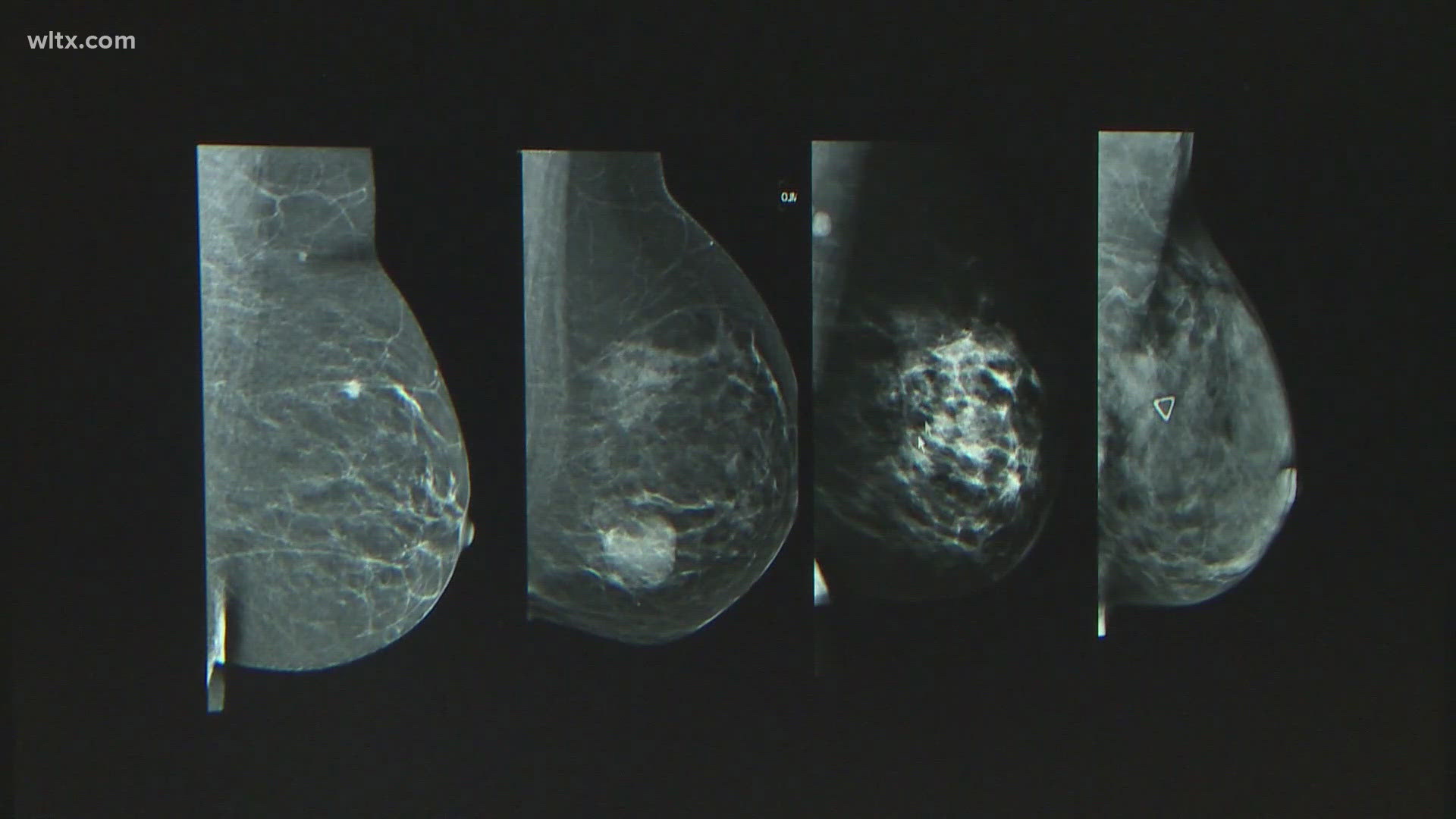COLUMBIA, S.C. — Speaking up for yourself can be one of the most powerful tools in the fight against breast cancer, experts say.
“It’s your life, and nobody else should judge you for advocating for yourself,” said Jessica Gonzalez, a breast cancer survivor and research associate with the University of South Carolina’s College of Nursing.
Gonzalez, who was diagnosed early, attributes her survival to early detection and encourages others to take control of their health by recognizing warning signs.
“We can be our best advocates,” Gonzalez said. “Finding a lump earlier rather than later means that you have a decreased likelihood that it will advance.”
Breast cancer is the most commonly diagnosed cancer among women in South Carolina, according to the state Department of Public Health (DPH). Despite advancements in screening, disparities remain, particularly for Black women.
“Among Black women, we know they are more likely to be diagnosed with more advanced stages of breast cancer, and they are more likely to get diagnosed at a younger age,” Gonzalez said. Her research focuses on disparities in the disease.
Early detection is key. Mammograms can detect small masses—sometimes as tiny as a grain of rice—before they are noticeable, Gonzalez said.
“It can be very small, usually an identifiable mass, which is usually one that will also be caught on a mammogram,” she said.
Breast cancer is also the second leading cause of cancer-related death among women, which is why experts stress the importance of trusting your instincts when it comes to your body.
“If your gut is telling you something is not right, that gut is so reliable,” Gonzalez said. “Patients are often spot-on about their own bodies when something's abnormal, and that’s been supported by a plethora of research.”
National screening guidelines vary:
- The U.S. Preventive Services Task Force recommends starting at 50.
- The American Cancer Society advises starting at 45.
However, some women may need to start screenings earlier.
“I think it’s important to note that these recommendations are based on people of average risk,” Gonzalez said. “Because you are your best advocate, you’re going to know your history and risk better than your provider. Push to get that mammogram if you know you have a higher risk.”
For those who feel hesitant or uncomfortable advocating for screenings, hospitals offer patient advocates to help navigate the healthcare system and ensure concerns are heard.
“You can talk to them and say, ‘I’m really concerned about my increased risk for breast cancer and don’t feel like I’m being heard. How can you help?’” Gonzalez explained.
Patient advocates act as liaisons between patients and healthcare providers, assisting in getting the care and screenings they need. These advocates are trained to listen to patient concerns, provide guidance, and help ensure that individuals receive appropriate attention based on their health risks.
For more information on breast cancer screenings, advocacy, and patient advocates, contact DPH or the American Cancer Society.

